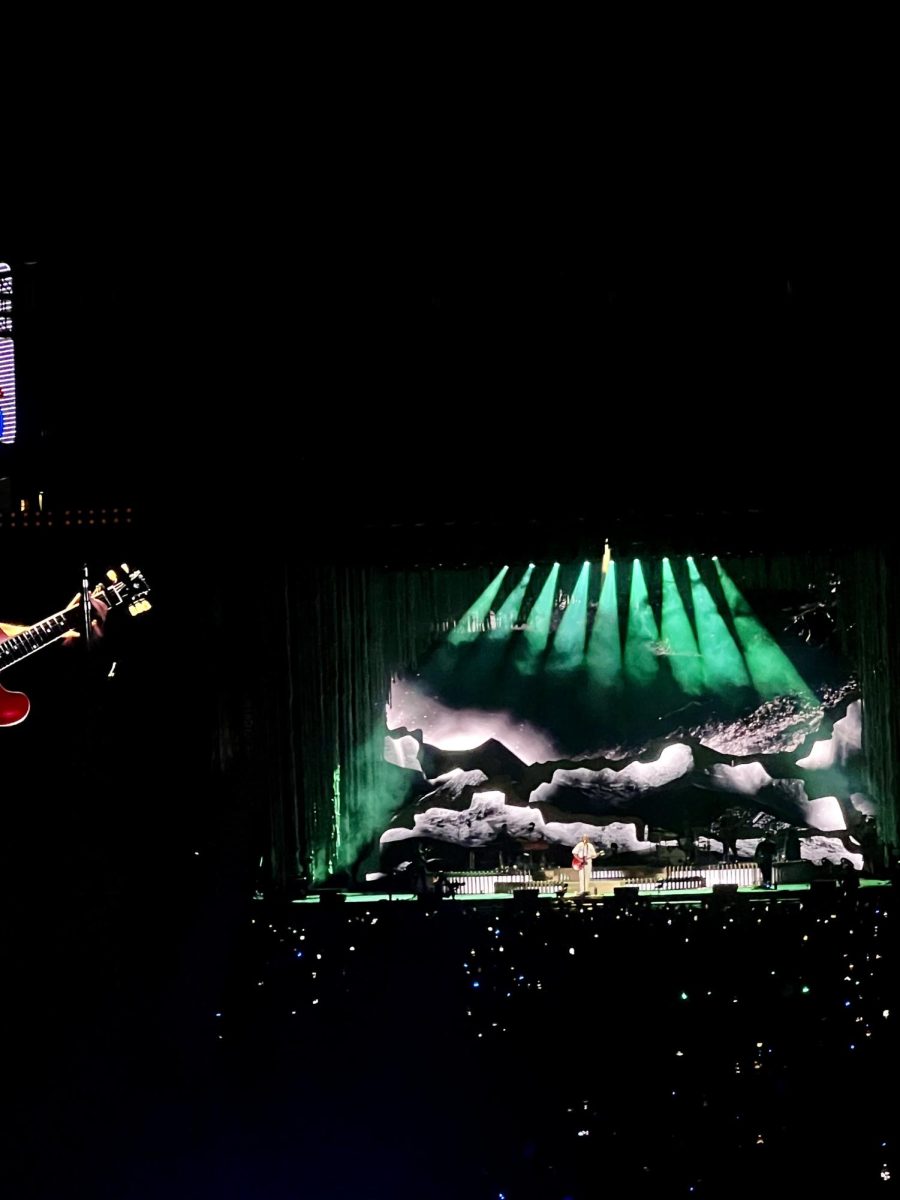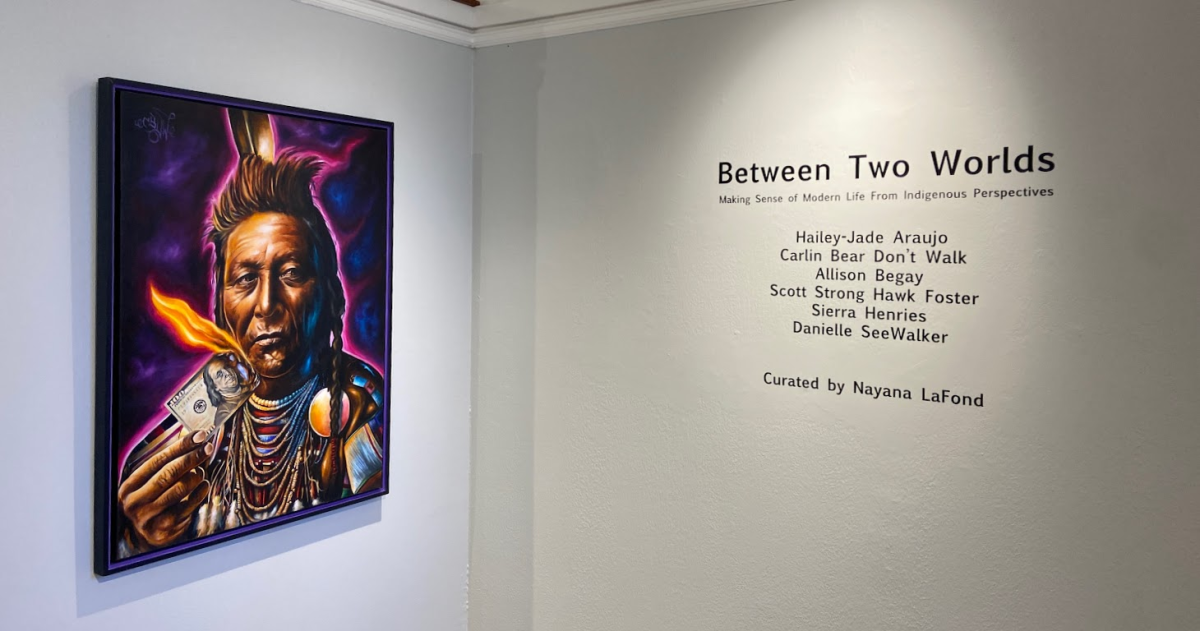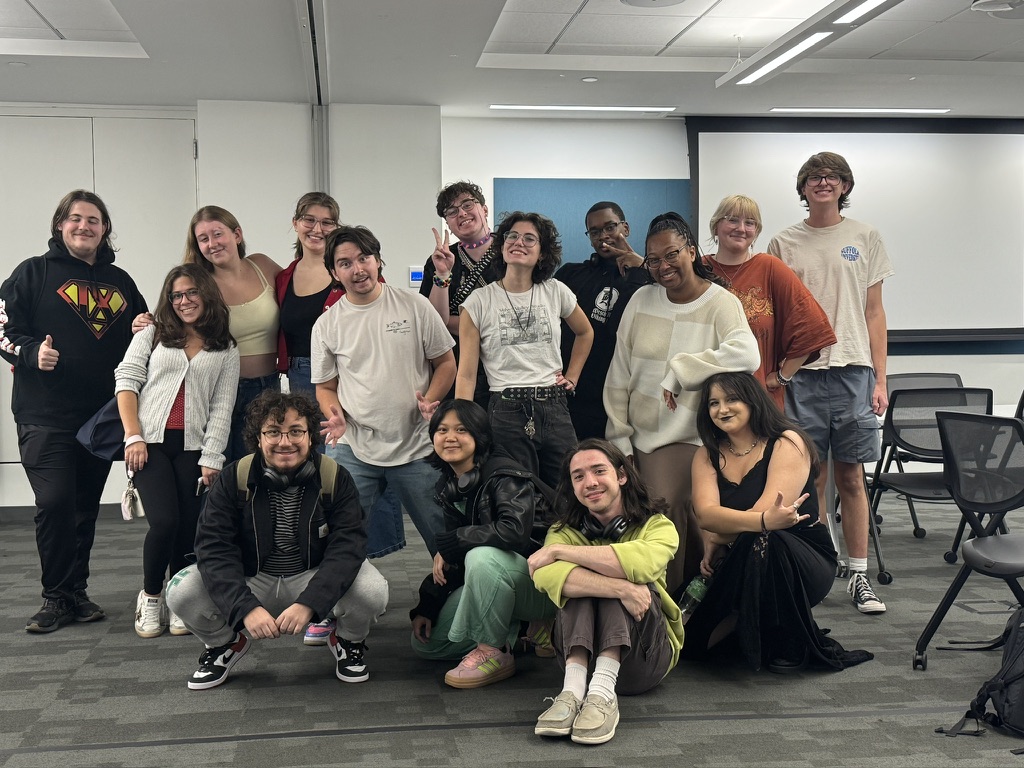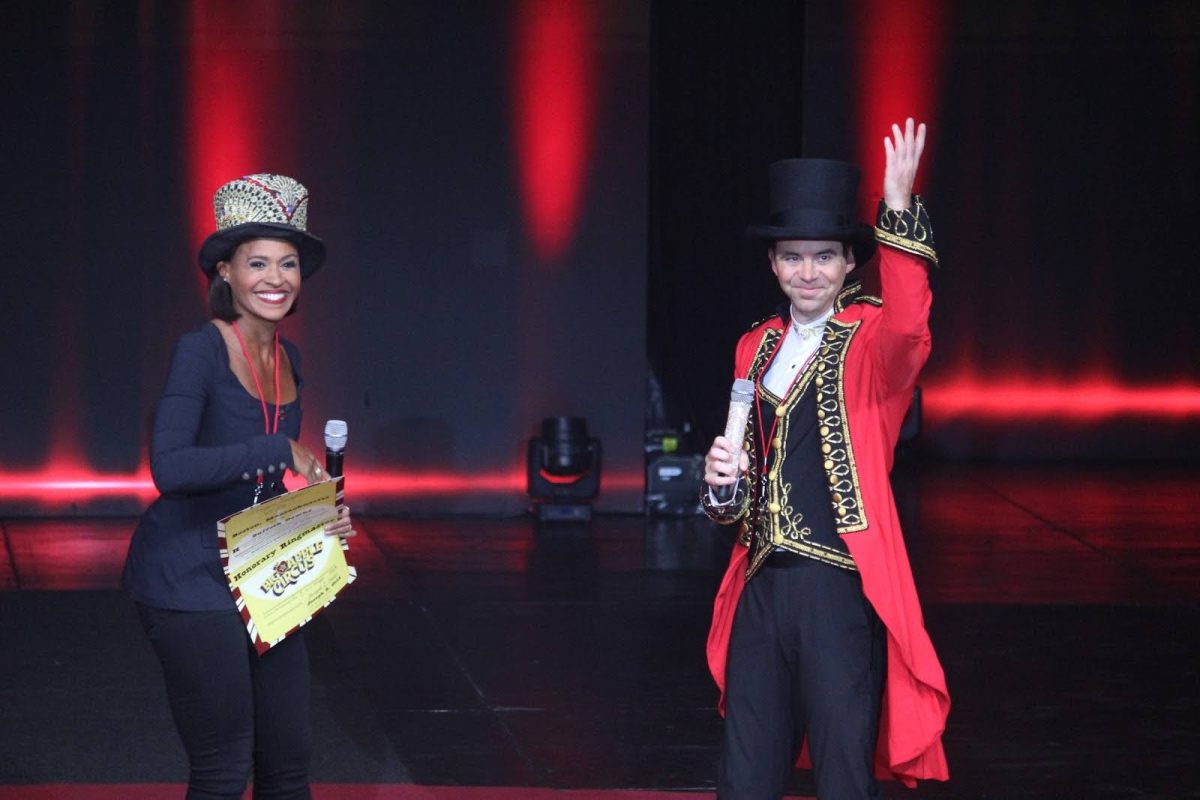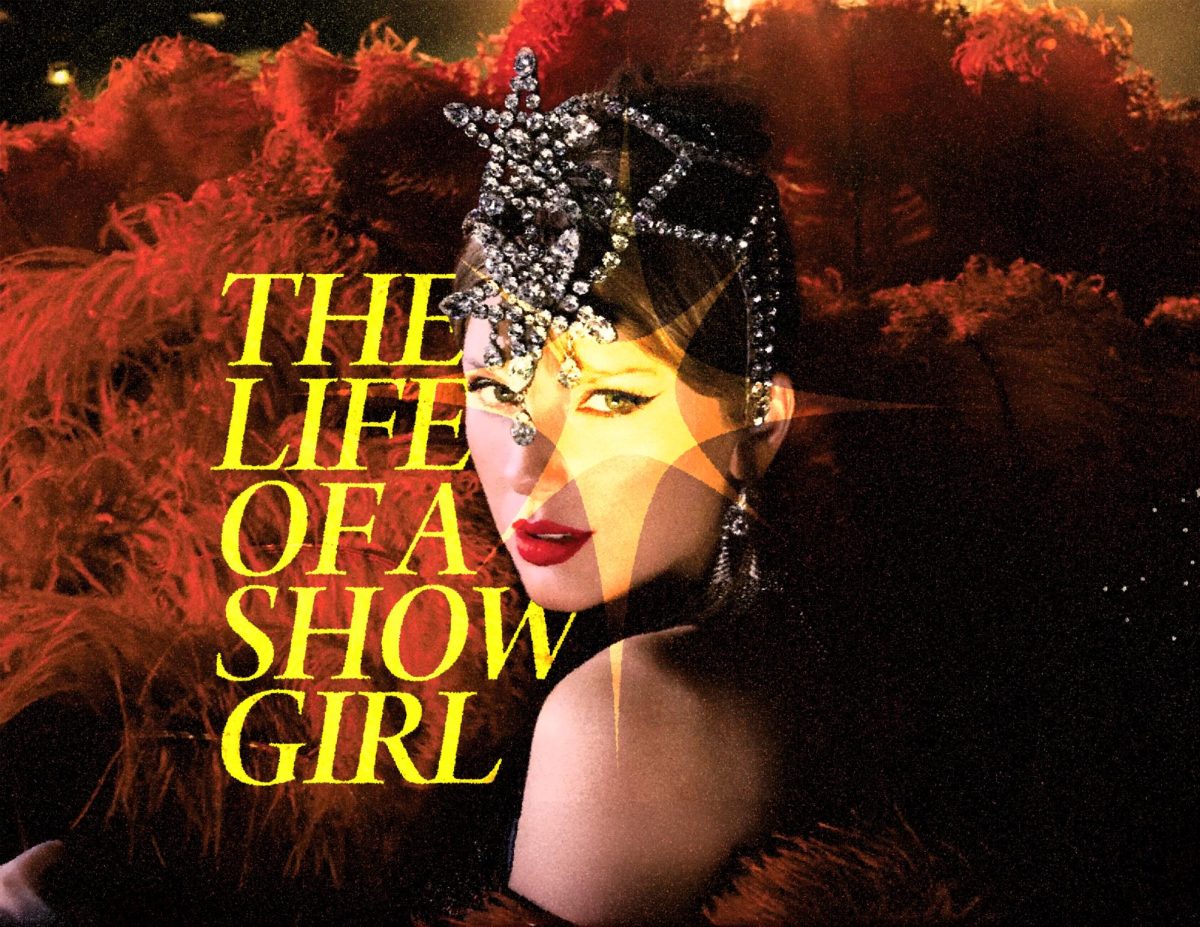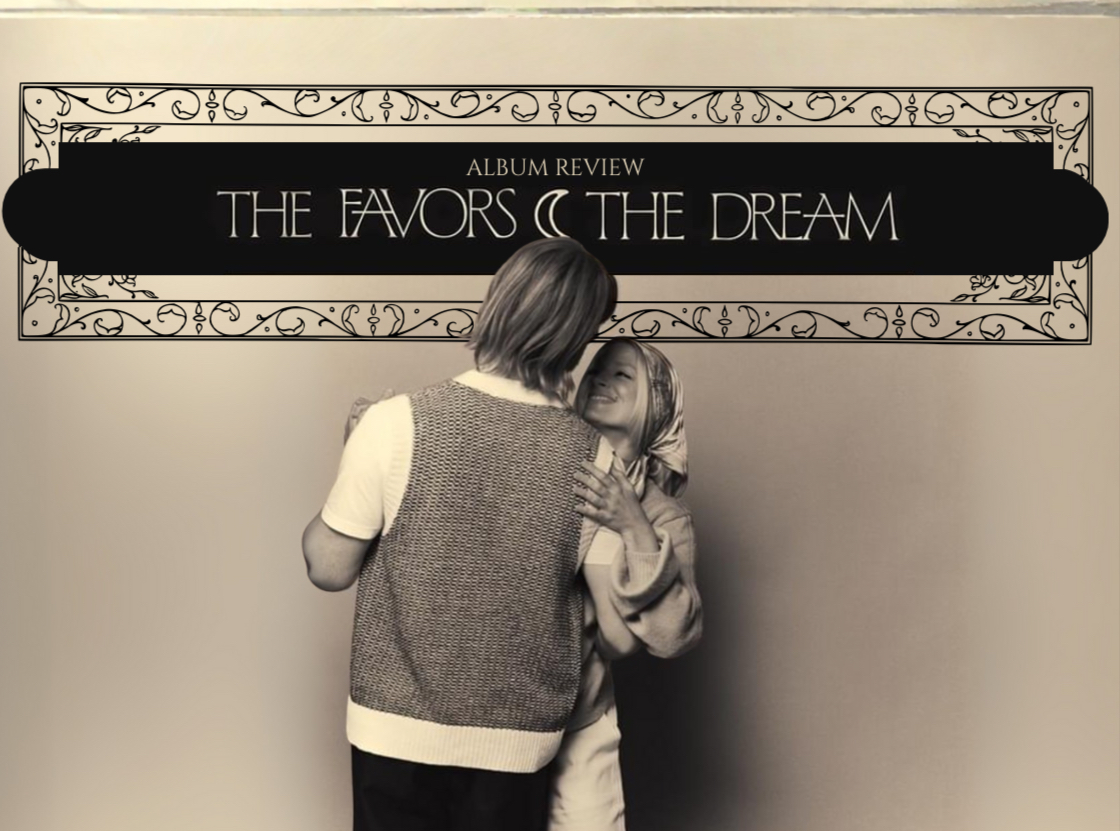Following two sold-out shows at Fenway Park July 18 and 19, Noah Kahan began hinting at a live album. As a born and raised New Englander, he wanted to honor and preserve such a large landmark in his career. On Aug. 30, the folk artist released “Live From Fenway,” his sixth album.
“Live From Fenway” marks his fourth rendition of his two-time platinum album, “Stick Season.” However, each ‘sister’ album is new and different, bringing in new artists or even whole new songs. Seemingly, for Kahan, the stick season fever will not be ending any time soon.
“Live From Fenway” is what it sounds like; an album that allows the listeners to feel as though they are in Fenway Park, listening as Kahan plays his heart out at such an iconic stadium. Additionally, with this live album, his little quips and remarks have been kept in, something that is typically reserved for viewers of live shows or through scouring TikTok or YouTube. Despite being the one with the mic, his voice is far from the only one we hear within this album. 30,000 voices echo his own, ascending this album to heavenly heights.
The opening song was one he typically played as his opener, “Dial Drunk.” The intro is drawn out, building the anticipation of the artist finally making his appearance on the stage, an appearance that is marked by the cheers from the fans. This lively and fast-paced tempo quickly sets the tone for the rest of the show, kicking it off with the biggest bang of all. The crowd is quick to match his energy, as you can just picture the crowd dancing and singing along with Kahan.
“It’s so good to be home,” said Kahan, after he soaked in the enthusiastic crowds for a moment.
The electric energy continues through Kahan’s set as he continues to play some of his biggest hits with his fans singing back to him.
Along with the Fenway Park shows came a new song that Kahan had been teasing for a while, “Pain is Cold Water.” Unlike all of the other songs on the album, this is the first released version of this song. Around here is when the music begins to slow down, allowing the listeners to really listen and wallow with Kahan.
It’s a poignant ballad, filled to the brim with references to internal struggles with mental health, a common theme among Kahan’s works. Lines like “And, if love was contagious, I might be immune to it / Pain’s like cold water, your brain just gets used to it,” give more insight into how he rationalizes his struggles. This song feels like a mental spiral, dizzyingly going down a rabbit hole of one’s imperfections and inadequacies.
Immediately after the debut of his new song, Kahan goes into a song he has personally remarked as his favorite multiple times. “Maine” is from his EP “Cape Elizabeth,” a song that describes the prices of stardom and the hometown yearning that remains long after you’ve left. It is completely understandable for this to be Kahan’s favorite song of all he’s written, as he might relate to it the most.
“Maine” takes on the perspective of his hometown, watching him grow and achieve all of his dreams, at the price of leaving them behind. Even though Kahan still longs to return to Maine, all parties involved are aware that he can’t. Something about the last line of the song, “I hope that we make you proud / ‘cause this town’s just an ocean now,” brings forth this awareness that the town wants to make Kahan just as proud as he wants to make them. The ebb and flow between the yearning to return or stay away ties in perfectly with the repeated mention of the coastal aspects of the town.
If “Maine” is a ballad about the yearning to return home, “You’re Gonna Go Far” is a symphony about the urgency to leave home. They don’t counter each other but rather bring awareness to both sides of the conversation. To want to leave everything you’ve ever known and love is a hard conversation to have, even harder when some don’t understand. Kahan brings comfort to the conversation, “we ain’t angry at you, love.”
“Northern Attitude” is an anthem for the East Coast. Kahan makes distinct references to the area, apologizing for having a cold facade and being raised on little light. With New Englanders being notorious for harsh winters and even harsher attitudes, the connections are seemingly clear. With its shouts in between the lyrics and seamless metrics, “Northern Attitude” is a song that’s hard to get out of your head. It’s a rallying cry for New Englanders, to unite the unapologetically cold and rude.
The next song comes from Kahan’s very first album, Busyhead. “Mess” is an homage to his humble beginnings and the mental health struggles that come with being in the limelight. During this song, Kahan is battling with whether or not to give up his dreams, and if returning home would help or worsen his struggles. Additionally, there are many points in which the music cuts out and the singing relies strictly on the crowd, which is more than happy to help Kahan with this one.
Within the second verse, the lyrics “Guess the stage is my mask / I forgot the way I looked before I wore it,” allow us to see the full extent of what Kahan was struggling with. Using his fame and his career as a façade, hiding behind all of it to keep everyone’s worries at bay. In this process, he forgot who he was before the fabricated version of himself he created. Kahan is someone all too familiar with mental health struggles, leading to the creation of his own mental health non-profit. The namesake, The Busyhead Project, comes from his debut album. The goals of The Busyhead Project are to raise awareness and lessen the stigma surrounding mental health, goals that align with Kahan’s values and music.
Where it all started is a good place to end his sold-out shows at Fenway Park. “Stick Season” was Kahan’s first major hit, the song that propelled him into stardom and allowed him to play venues like Fenway. It’s the namesake of his albums and his tours and it’s no accident that it’s the last song he plays before closing the night out. It’s surely a bittersweet moment.
Kahan has a way of emulating and putting into words experiences that many struggle to put into words themselves. His songs are masterfully crafted to describe feelings and thoughts that few put so eloquently. The storytelling is on another level, fully immersing the listener through perfectly placed descriptors. All of this is set to artfully crafted rhythms that envelope the listener and enhance the message Kahan is trying to get across. He is a musical artist in the truest meaning of the word.


